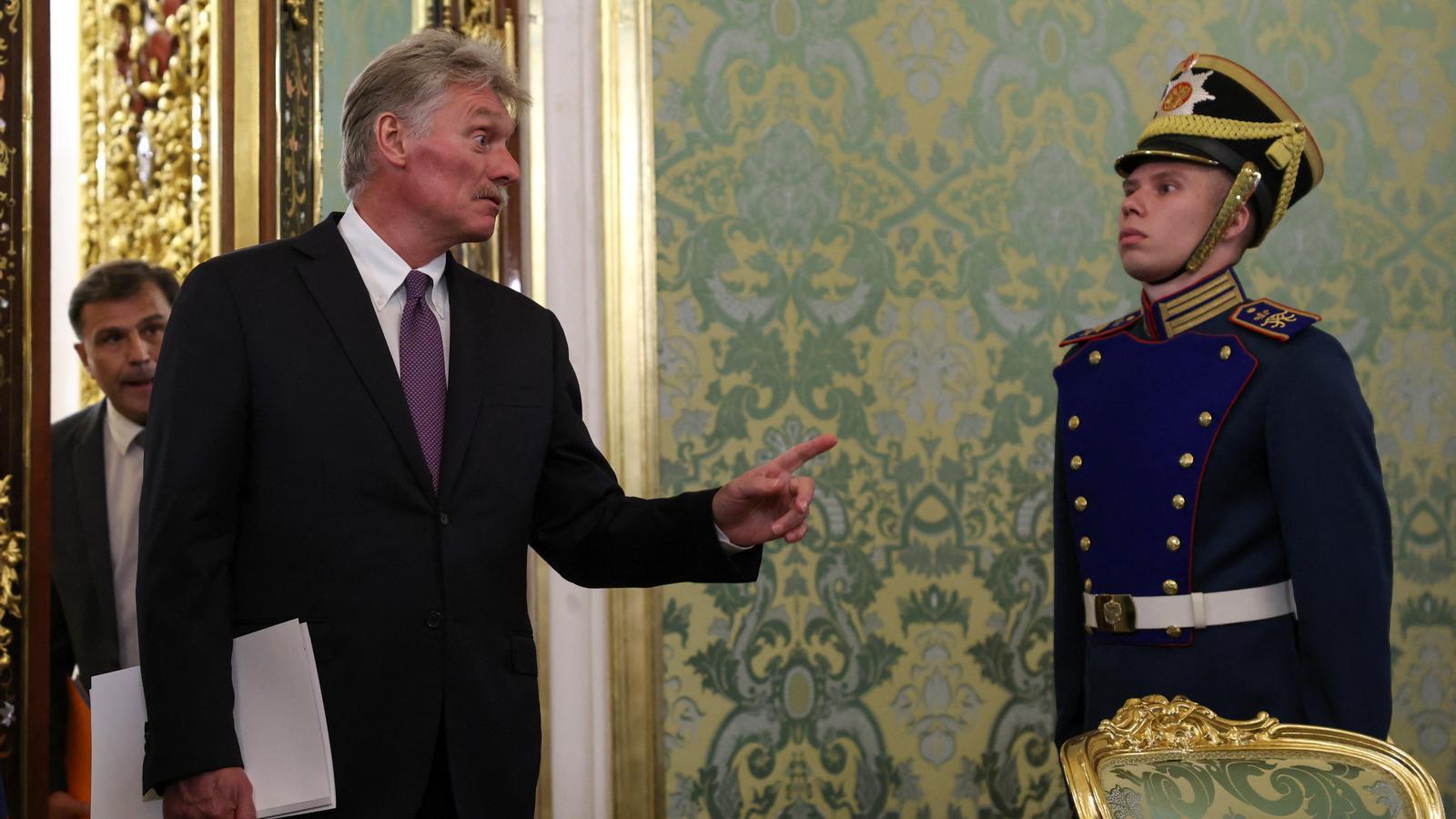Russia deploys short- and medium-range missiles despite rejecting "nuclear rhetoric"
Putin opens up to meeting with Zelensky two days before Witkoff's visit to Moscow

BarcelonaThe Kremlin reacted this Monday to Trump's order to deploy two nuclear submarines off the Russian coast After a week of silence, Russian presidential spokesman Dmitry Peskov warned at a press conference that "in a nuclear war there can be no winners." "Everyone must be careful with nuclear rhetoric," the presidential spokesman said, emphasizing that Moscow does not want to "get involved in a controversy" with the United States on this matter. Despite the conciliatory rhetoric, the Kremlin announced mid-afternoon that it is lifting restrictions on the deployment of medium- and long-range missiles, a gesture that threatens a new escalation.
The Ministry of Foreign Affairs noted "the disappearance of the conditions" for maintaining the "unilateral moratorium on the deployment of these weapons" and maintains that the Russian Federation "no longer considers itself bound by the limitations it imposed on itself in the past," according to a statement. The Ministry of Foreign Affairs refers to the international INF Treaty (INF). medium-range nuclear forces) signed between the United States and the Soviet Union in 1987, under which both powers agreed to eliminate ballistic and cruise missiles, both nuclear and conventional, with a range of between 500 and 5,500 km and installed in military bases in Europe. In 2019, the United States withdrew from the treaty because it accused Russia of violating it, and Moscow's response was also to abandon it and approve a moratorium prohibiting the deployment of missiles banned by the INF Treaty.
However, the Kremlin has sought to downplay Trump's threat, saying that "US nuclear submarines are always on alert: it is a constant thing." Last Friday, Trump ordered the deployment of two nuclear submarines following the "provocative statements" by former Russian President Dmitri Medvedev, who had warned X: "Every new ultimatum is a step towards war. Not between Russia and Ukraine, but with your own country." Trump responded that "words are very important and can often have unintended consequences." The Kremlin defended the former president's statements, but noted that what counts "is President Putin's position," since in Russia "foreign policy is formulated by the head of state."
Ukrainian authorities, for their part, have expressed their gratitude to Trump for the deployment of US submarines in Russia. The Kremlin broke its silence after Andriy Yermak, Kiev's chief of staff, remarked on X: "As soon as the US nuclear submarines appeared, a drunken Russian fell silent. Russia understands only one thing: strength."
Moscow opens to a meeting with Zelensky
At Monday's press conference, Peskov asserted that a meeting between Vladimir Putin and Ukrainian President Volodymyr Zelensky is possible. Moscow has set a condition that experts from both presidents meet to prepare for a possible future summit. Putin had so far rejected a meeting between the two leaders, arguing that a meeting would only be possible if it served to confirm that Russia had achieved the objectives of its invasion, namely, Kiev's surrender.
In this context, US President Donald Trump announced yesterday that the US special envoy for the Middle East, Steve Witkoff, will visit Russia on Wednesday and Thursday of this week. The Kremlin confirmed the visit on Monday: "We are always glad to see Mr. Witkoff in Moscow and maintain contacts with them. We consider them important, significant, and very useful," Peskov stated. This week will be Witkoff's fifth official trip to Russia this year. The Ukrainian publication also Ukrainska Pravda It was leaked on Monday that the White House special representative for Ukraine, Keith Kellogg, will travel to Kiev at the end of the week.
Witkoff's visit comes in a particularly tense context in relations between Russia and the United States, after Trump issued a statement last Tuesday ultimatum for Russia to reach a peace agreement with Ukraine within "ten or twelve days", under threat of more US sanctions and secondary tariffs on Russian oil imports; despite Trump's assertion that Moscow "appears quite capable of avoiding the sanctions." The deadline set by Trump's ultimatum expires this Friday. The Kremlin responded to the threat with another massive bombing on UkraineHowever, Peskov assured this Monday that "dialogue continues, the United States continues working to mediate in the search for a solution to the Ukrainian problem"; efforts he described as "very important."
